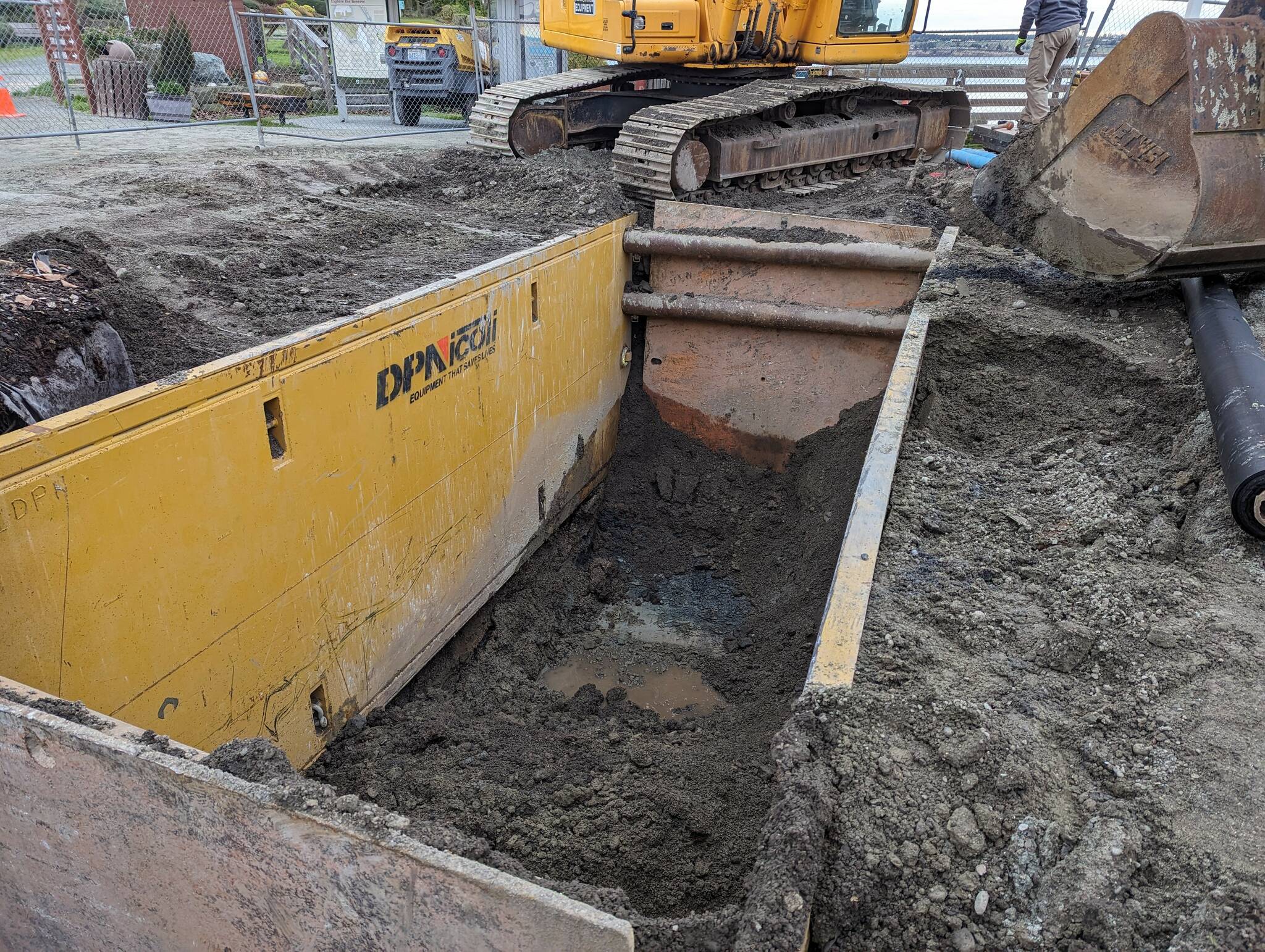The installation of a new underground fuel tank for the Port of Coupeville Wharf is currently on hold following the discovery of diesel and gasoline contamination under the site, which might cost the port thousands of dollars to remediate.
The leak was found on Dec. 11, 2023 near the landward end of the raised path to the wharf. After removing the old tank — which held 1,800 gallons of diesel and 1,200 gallons of regular fuel — from the ground, workers began expanding the hole to accommodate the new, larger tank and smelled petroleum vapors, according to information presented during a board of commissioners meeting on Dec. 27. A soil test later revealed diesel and gasoline contamination, with the gasoline exceeding cleanup levels.
During an interview on Jan. 22, Executive Director Chris Michalopoulos said the contamination was found on the southern side of the tank, away from the water.
“I’m not worried about any of that reaching the ocean,” he said.
Still, the discovery could mean more expenses on the horizon for the port. Because the contamination was found on port property, the Department of Ecology established that the port has the duty to clean it up, regardless of the source.
“One thing is sure: that we have to clean it up no matter what,” Michalopoulos said on Dec. 27.
Originally, the port was set to pay $246,465 for the tank replacement, conducted by private contractor Ultra Northwest. Now the port is facing the possibility of paying a total of $347,209 — sales tax included — if further soil tests show a wider contamination. In that case, the port would have to pay $72,661 to excavate a 20-by-30-foot area that is 11 feet deep, according to Michalopoulos and a change order proposal that was approved by the board on Dec. 27.
This remediation work would fall under the Industrial Development District as it is a capital improvement project, Michalopoulos wrote in a text on Jan. 23.
As of Jan. 22, the port is seeking bids to conduct more tests. Once the results come in, the port will proceed with developing a plan, according to Michalopoulos, who could not provide a timeline estimate for this work. However, if the test results come back negative, the port can proceed with the tank replacement project and may be able to provide fuel again in late March or sometime in April, Michalopoulos texted. The new tank, he wrote, holds 2,107 gallons of diesel and 1,542 gallons of regular fuel.
The cleanup might also lead to the closure of the entire wharf for an unspecified period of time, Michalopoulos said earlier.
Michalopoulos said insurance will cover cleanup costs only if the leak is found to come from the port’s tank. If not, then the port will have to pay for cleanup costs and seek remediation from the parties responsible, after working with the Town of Coupeville to find the source of the leak.
When it comes to the source, Michalopoulos assured the leak did not come from the tank that was just removed. In fact, upon inspection, it did not show any leaks, and the soil around it was clean. It was only when workers dug deeper that they found the contamination, but that did not come from the tank before, either. Michalopoulos said he read a report stating that the previous tank, removed in 1994, did not leak and the soil around it was clean.
Instead, he said there is a chance it came from fuel tanks that were once located at the corner of Northwest Coveland Street and Northwest Alexander Street. If that were the case, the leak might have contaminated a much larger area.
“That can be quite a cleanup project,” Michalopoulos said.



